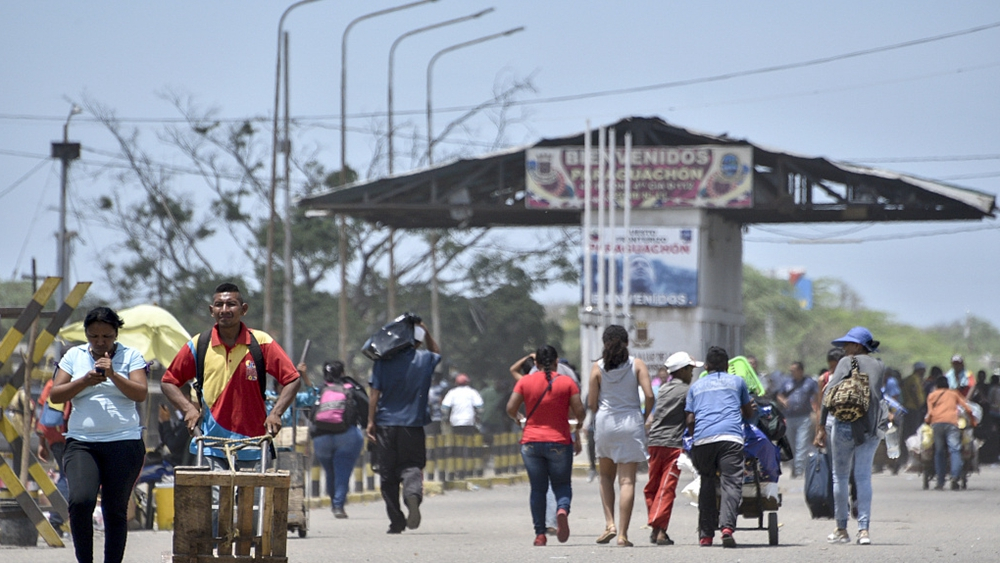

Venezuelans cross the border between Colombia and Venezuela in Paraguachon, June 9, 2019. /VCG Photo
The European Union will give 30 million euros (33 million U.S. dollars) in aid to Colombia to help the Andean country grapple with an influx of Venezuelan migrants fleeing poverty and domestic violence at home, EU Foreign Policy Chief Federica Mogherini said on Thursday.
More than four million Venezuelans have fled in recent years amid widespread shortages of food and medicine in their homeland. Colombia has borne the burnt of the exodus as it is now home to more than 1.4 million Venezuelans, many of whom arrived with little money and in need of services like healthcare.
"I'm pleased to announce new help of 30 million euros for the identification of migrants and their socio-economic integration," said Mogherini.
"We support these efforts by the government and local authorities to offer employment, entrepreneurship and dignified housing for refugees, migrants, returned people and also receiver communities."

Venezuelan migrants receive food in Villa del Rosario at the country's border with Venezuela, February 13, 2019. /VCG Photo
The EU has already given some 130 million euros to countries in the region to help them provide for migrants, Mogherini said.
It's said that Colombia and the EU will hold a conference in Brussels in October about the crisis, in a bid to raise more funds for migrant care.
Colombia has repeatedly lamented a lack of funding for Venezuelans, saying the international community has donated many times more to the war-torn countries including Syria.
Unlike its neighbors, Colombia has not imposed stringent immigration requirements on Venezuelans, instead encouraging migrants who entered the country informally to register with authorities so they can access social services.

Copyright © 2018 CGTN. Beijing ICP prepared NO.16065310-3
Copyright © 2018 CGTN. Beijing ICP prepared NO.16065310-3